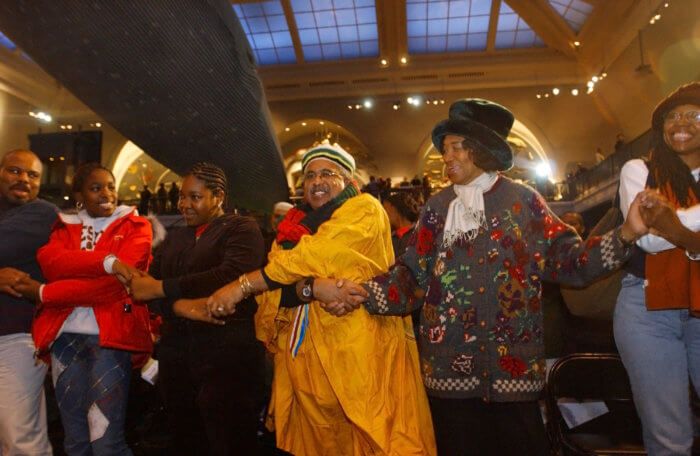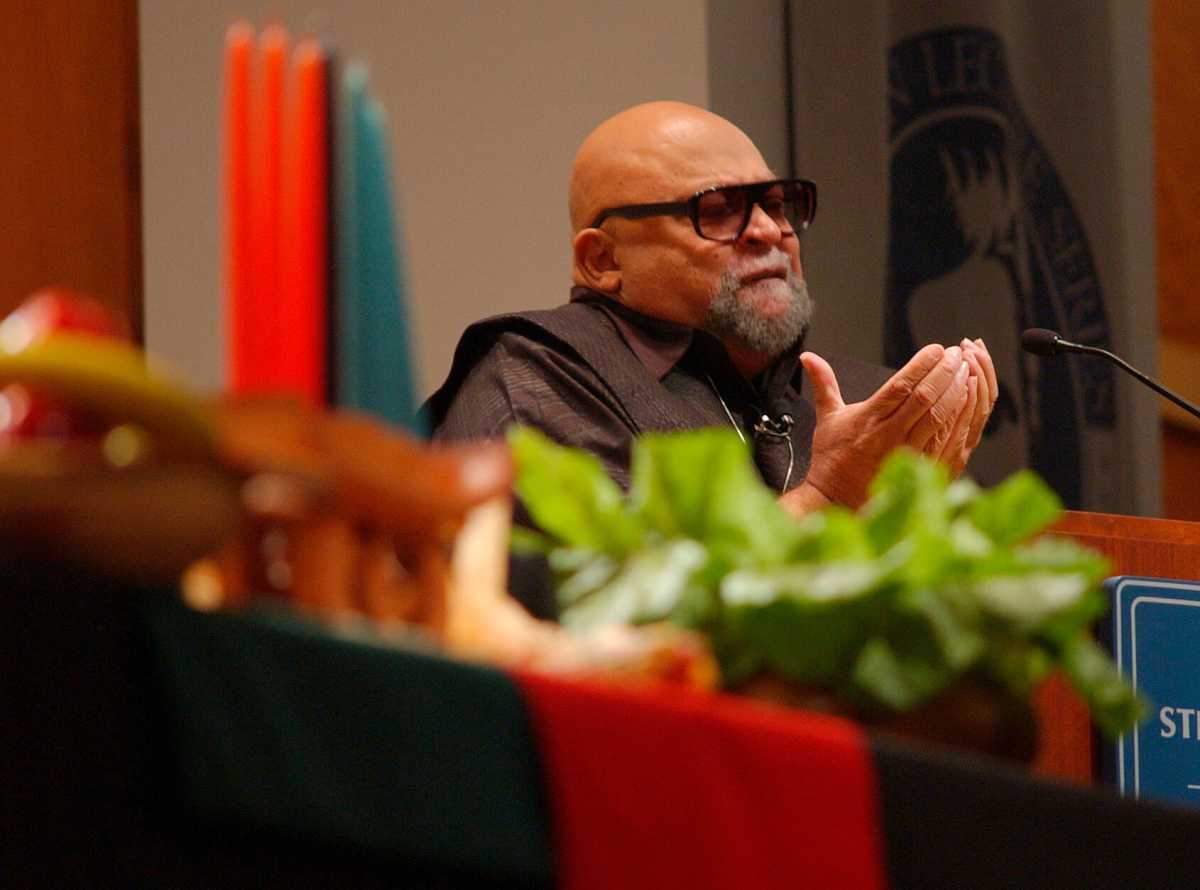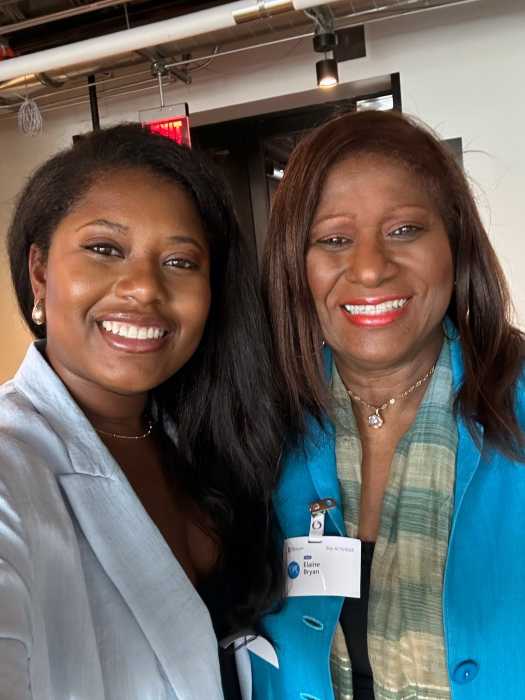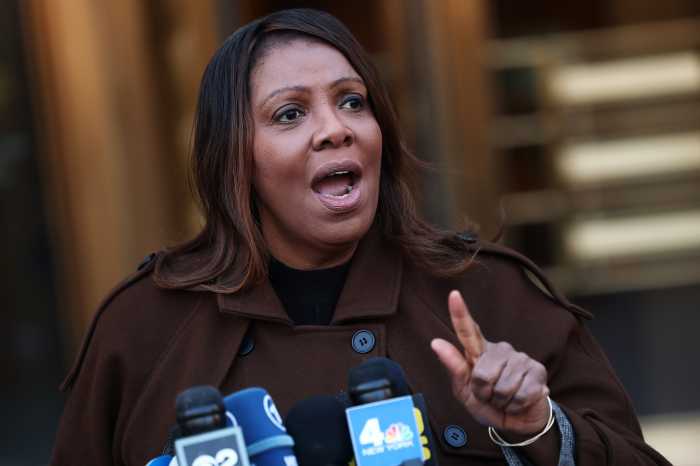Created by Dr. Maulana Karenga, professor and chairman of Black Studies at California State University, Long Beach in 1966, Kwanzaa is an annual week-long celebration that is observed from Dec. 26 to Jan. 1, according to Awarenessdays.com.
“Following the Watts Riots that took place in LA (Los Angeles), Dr. Karenga was keen to create an event that would unite African-Americans,” it said. “He wanted African-Americans to have an opportunity to celebrate themselves and their history instead of imitation of participation of the dominant society.”
Dr. Karanga founded US, a cultural organization, and started to research African first fruit (harvest) celebrations, awarenessdays.com.
It said Karenga combined aspects of several different harvest celebrations, such as those of the Ashanti and the Zulu, to form the basis of Kwanzaa.
Awarenessdays.com said this celebration is based around seven major principles which are, according to Karenga, “a communitarian African philosophy: unity, self-determination, collective work and responsibility, cooperative economics, purpose, creativity and faith.
“On each of the seven nights of the week-long celebration, families gather together and light one of the seven candles of the Kinara,” Awarenessdays.com said. “Usually, a discussion about the one specific principle takes place.”
It said Kwanzaa also has its own symbols, which include: a decorative mat, an ear of corn, crops, the Unity Cup, gifts, the seven candles and candleholder.
“All the symbols are designed to convey the seven principles of Kwanzaa,” Awarenessdays.com said.
“Many African-Americans who celebrate Kwanzaa observe it as ad additional celebration to Christmas.”

According to Wikipedia, the free online encyclopedia, Karenga’s goal was to “give Blacks an alternative to the existing holiday and give Blacks an opportunity to celebrate themselves and their history, rather than simply imitate the practice of the dominant society.”
For Karenga, a major figure in the Black Power movement of the 1960s and 1970s, the creation of such holidays also underscored the essential premise that “you must have a cultural revolution before the violent revolution,” according to Wikipedia. “The cultural revolution gives identity, purpose, and direction.”
Karenga said Kwanzaa derives from the Swahili phrase matunda ya kwanza, meaning “first fruits of the harvest.”
A more conventional translation would simply be “first fruits,” states Wikipedia.
“The choice of Swahili, an East African language, is ahistoric, as most of the Atlantic slave trade that brought African people to America originated in West Africa,” it said. “First fruits festivals exist in Southern Africa, celebrated in December/January with the southern solstice.”
Wikipedia said Karenga was partly inspired by an account he read of the Zulu festival Umkhosi Wokweshwama.
It was decided to spell the holiday’s name with an additional “a”, so that it would have a symbolic seven letters, Wikipedia said.
“During the early years of Kwanzaa, Karenga said it was meant to be an alternative to Christmas,” it said. “He believed Jesus was psychotic, and Christianity was a ‘White’ religion that Black people should shun.”
As Kwanzaa gained mainstream adherents, Wikipedia said Karenga altered his position, “so practicing Christians would not be alienated.”
In the 1997 “Kwanzaa: A Celebration of Family, Community and Culture,” Karenga said, according to Wikipedia, that “Kwanzaa was not created to give people an alternative to their own religion or religious holiday.”
Many African Americans who celebrate Kwanzaa do so in addition to observing Christmas, said Wikipedia, adding that, after its initial creation in California, Kwanzaa spread outside the United States.


























